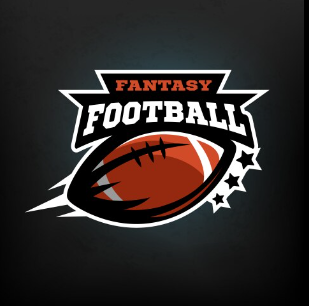The game is on and the room buzzes with life. On the couch, surrounded by family, the warmth of bodies pressing close, the aroma of snacks drifting in the air. Shouts rising and falling with each play, a chorus of excitement and frustration. The TV flickering, reflecting faces lit with hope or despair, voices blending into one. In these moments, it’s not just the game—it’s the shared pulse of the room, the energy, and everyone coming alive through every goal or miss.
Fantasy sports are games where players create teams based off real players and performances. This is a new interactive way to connect to the game. Fantasy sports first emerged in the 1960s in the baseball community but have bloomed into what we know now. Specifically, fantasy football has become a normal facet of the sport world, going hand in hand with the game itself. It has taken center stage as one of the most popular fantasy sports games, blending real-life NFL performances with virtual strategy. In fact, fantasy football has become so ingrained in the culture that it’s almost impossible to watch an NFL game without hearing some game-day commentary or other references to it.
As for more information about the game itself; it’s a game where participants act as team managers, drafting real NFL players onto their fantasy rosters. Each week, the real-life performances of those players—whether it’s yards gained, touchdowns scored, or passes completed—convert into points. Teams face off weekly, and the manager with the highest score takes home the win. It’s a game of strategy, requiring participants to track stats, follow games, and make critical decisions on trades, drafts, and starting line-ups.
Despite its popularity, there are risks that come with the game, especially when money enters the mix. While fantasy football isn’t considered true betting or gambling, it does blur the lines. It’s not a game of chance; success depends on how well you manage your team and predict players’ performances. However, when leagues involve entry fees or side bets, financial losses can stack up. An injury to a star player or a bad week can not only ruin your fantasy standings but also hit your wallet hard. The thrill of winning can easily turn into stress over money lost.
Be warned; not all punishments are monetary. For many teen participants, creative and often hilarious punishments have become part of the game. These punishments range from wearing embarrassing outfits to school for a day, to taking on ridiculous challenges in public. Some leagues force the last-place finisher to endure a gruelling “punishment day” filled with cringe-worthy tasks. Others may involve social media dares, forcing the loser to post something for everyone to see.
“When my players do well, it’s a whole different level of excitement. I feel like I’m more into the league as a whole, not just my favourite team. Sometimes when my team or a surprise player gets a lot of points, it makes me feel like Doc Rivers,” said Akin Nicol (‘26).
The game is on, and the stakes have never felt higher. But this time, it’s not just about the players on the field, it’s about the players on the screen. The excitement, the tension, the rush of knowing your fantasy team could turn a simple Sunday afternoon into a day of triumph or a nightmare of punishments and losses. Whether it’s the agony of a fumble or the nervous glance at your fantasy line-up, fantasy football has transformed the way fans watch the game. It’s no longer just a sport; it’s a game within a game, where strategy meets chance and victories are earned on virtual fields.



